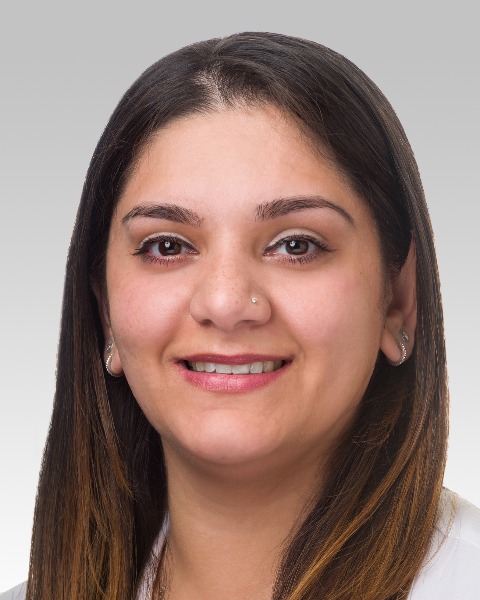Clinical Obstetrics
Poster Session 2
(456) Association of Restless Legs Syndrome in Pregnancy with Cardiovascular Health 2-7 years after first birth
.jpg)
Rachel Friedlander, MD
Northwestern University Feinberg School of Medicine
Chicago, IL, United States- XH
Xiaoning Huang, PhD
Northwestern University Feinberg School of Medicine
Chicago, IL, United States - MK
Minjee Kim, MD
Northwestern University Feinberg School of Medicine
Chicago, IL, United States 
Sadiya S. Khan, MD, MSc
Assistant Professor of Medicine
Northwestern University Feinberg School of Medicine
Oak Park, IL, United States- PZ
Phyllis Zee, MD, PhD
Northwestern University Feinberg School of Medicine
Chicago, IL, United States - PG
Philip Greenland, MD
Northwestern University Feinberg School of Medicine
Evanston, IL, United States 
Natalie A. Bello, MD, MPH (she/her/hers)
Associate Professor of Cardiology
Cedars-Sinai Medical Center
Los Angeles, CA, United States
Janet M. Catov, PhD
Associate Professor
Magee-Womens Research Institute
Pittsburgh, PA, United States- BG
Bethany Gibbs, MSc, PhD
West Virginia University
Morgantown, WV, United States 
William A. Grobman, MD, MBA
Professor
The Ohio State University
Columbus, Ohio, United States- DH
David M. Haas, MD, MSCR
Attending Physician
Indiana University
Carmel, IN, United States .jpg)
Lisa D. Levine, MD, MSCE (she/her/hers)
Associate Professor
University of Pennsylvania
Philadelphia, PA, United States- RM
Rebecca B. McNeil, PhD
RTI
Durbam, NC, United States 
Brian M. Mercer, MD
Department Chair of Obstetrics & Gynecology
MetroHealth Medical Center
Cleveland, OH, United States- NB
Noel Bairey Merz, MD
Cedars-Sinai Medical Center
Los Angeles, CA, United States 
Eliza C. Miller, MD, MS
Assistant Professor of Neurology
Columbia University Irving Medical Center
New York, NY, United States
Uma M. Reddy, MD, MPH
Professor and Vice Chair of Research, Department of Obstetrics and Gynecology
Columbia University
New York, New York, United States
George R. Saade, MD (he/him/his)
Professor & Chair of Ob-Gyn
Eastern Virginia Medical School
Norfolk, VA, United States- RS
Robert M. Silver, MD
University of Utah Health
Salt Lake City, UT, United States 
Lynn M. Yee, MD, MPH (she/her/hers)
Associate Professor
Northwestern University
Chicago, IL, United States
Primary & Presenting Author(s)
Coauthor(s)
Restless Legs Syndrome (RLS) is associated with cardiovascular disease in the non-pregnant population. Prevalence of RLS is high during pregnancy, but data are limited regarding associations with cardiovascular health (CVH) after delivery. This study assessed the association of RLS in pregnancy with CVH 2-7 years after first birth.
Study Design: In this secondary analysis of longitudinal data from a large, diverse cohort of nulliparas conducted at 8 US medical centers, individuals were followed 2-7 years after first birth. RLS was evaluated in early (6-20 weeks’) and mid pregnancy (22-29 weeks’) via the International Restless Legs Syndrome Question Set. The primary outcome was CVH, quantified by the American Heart Association’s Life’s Essential 8 (LE8) score, a validated surrogate of cardiovascular disease risk with lower scores associated with worse CVH. The LE8 score includes diet, physical activity, nicotine exposure, sleep, body mass index, blood pressure, blood glucose, and lipids, and ranges from 0 (worst) to 100 (best). For early and mid pregnancy, a multivariable linear regression analysis was performed adjusting for baseline maternal age, race and ethnicity as a social construct, insurance status, and being at high risk for sleep disordered breathing.
Results: Of 3,289 individuals with data in early pregnancy and 4,009 with data in mid pregnancy who were eligible for inclusion in this analysis, 16.2% and 28.7% reported RLS symptoms respectively. RLS in early pregnancy was associated with lower mean LE8 score 2-7 years after birth; this association remained significant after adjusting for covariates in multivariable models (82.0 [SD 11.9] without RLS vs. 79.4 [SD 13.4] with RLS, p=0.008; β [95% CI] -1.62 [95% CI -2.48, -0.77]). However, RLS in mid-pregnancy was not associated with LE8 scores 2-7 years after birth (Table).
Conclusion:
RLS in early pregnancy was associated with worse LE8 scores 2-7 years after birth. These findings indicate a need for future research to understand how antenatal sleep disorders may relate to CVH.

